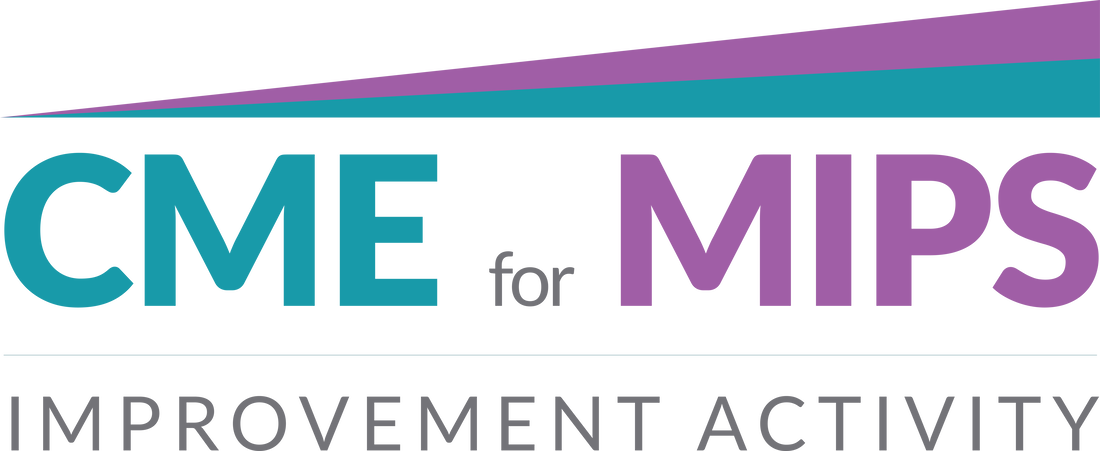INdependent Medical Education Compliance guide
In May 2022, the CME Coalition published the Independent Medical Education Compliance Guide to address: (1) the Accreditation Council for Continuing Medical Education (ACCME) Standards for Integrity and Independence in Accredited Continuing Education; and (2) best practices for education providers and the industry to consider for non-accredited educational activities.
The CME Coalition held an informational webinar on the guide on June 29, 2022. A recording of the webinar, as well as accompanying slides, can be found here..
The CME Coalition held an informational webinar on the guide on June 29, 2022. A recording of the webinar, as well as accompanying slides, can be found here..
Quality improvement CMEThe CME Coalition has championed the Centers for Medicare and Medicaid Services (CMS) for recognizing Quality Improvement continuing medical education (QI-CME) as an 'Improvement Activity' under Medicare's new Merit-Based Incentive Payment System (MIPS). MIPS is based on a 100-point score, with Improvement Activities representing 15 percent of the score. The CME Coalition and other stakeholders have long advocated that continuing medical education (CME) should be included in the Improvement Activity measurement category, as these courses are among the most important ways in which doctors seek to improve their understanding of new treatments and therapies, improve beneficiary outcomes, and ultimately, improve their practice as a whole.
In coordination with the Accreditation Council for Continuing Medical Education (ACCME), the CME Coalition has developed a logo and official descriptive language identifying accredited CME activities that meet the standards of CMS for the purpose of providing provider credit under the MIPS. The CME Coalition encourages CME provider organizations to utilize this logo and language to signify all activities that meet the CMS MIPS requirements. Completion of this accredited CME activity meets the expectations of an Accredited Safety or Quality Improvement Program (IA_PSPA_28) for the Merit-based Incentive Payment Program (MIPS) |
Health DisparitiesCME holds a special obligation, and plays a vital role, in advancing solutions to address disparities in health care that are experienced by socially disadvantaged populations as defined by their race, ethnicity, gender, education, income, disability, geographic location, or sexual orientation.
The members of the CME Coalition embrace the challenges inherent in tackling these issues and call on participants and stakeholders in Continuing Medical Education to commit to honestly acknowledging past and present biases in medical education to strive towards a more diverse, inclusive, and fair health care ecosystem. |
the Value of CMECME refers to a range of educational programs provided by trained professionals that helps health care providers to maintain their competence and to learn about new technologies, procedures and developing areas of their field. Content for these programs is developed, reviewed, and delivered by faculty who are experts in their individual clinical areas. CME plays a vital role in the delivery of innovative health care to American patients. The rapid pace of scientific discovery and innovation increases the need for CME as a means of communicating advances to medical practitioners and patients.
|
Shared Decision-MakingPatients who engage in and own their health do better. By training in shared decision-making, providers can empower patients to become more engaged in their own treatment. Shared decision-making, or SDM, is an engagement model that places patients at the forefront of their healthcare decisions and improves outcomes. In the SDM process, doctors help patients understand their health and give an evidence-based presentation of the treatment options available. CME is instrumental in helping doctors develop and maintain their skills, and as SDM tools continue to be developed CME providers play a leading role in ensuring that providers have access to them.
|
Open Payments and CMEIn September 2016, CMS posted an FAQ on its Open Payments website which explicitly clarifies that certain CME-related payments are exempt from public reporting. In the FAQ, CMS says that payments are not reportable "[i]f an applicable manufacturer or group purchasing organization (GPO) provides a payment or transfer of value to a continuing education provider to support a continuing education program, but did not require, instruct, direct or otherwise cause (including, but not limited to, ‘encouraging’ or ‘suggesting’) the continuing education provider to provide payments or transfers of value to a specific or particular physician speaker or faculty."
|
|
|
CME and the Fight Against Opioid AbuseCME has been proven to be a critical in educating physicians about the inherent risks in prescribing opioid medications. Over the course of 39 systematic reviews published between 1977 and 2014, ACCME has concluded that CME courses “can more reliably change health professionals’ knowledge and competence than their performance and patient health outcomes.” This video, produced by CME Coalition member Academy for Continued Healthcare Learning (ACHL), provides a sample of a CME activity intended to educate physicians, pharmacists, and other allied-health personnel on the latest guidelines surrounding prescription opioids as well as the latest epidemiological data surrounding addiction management and treatment.
|






